The World Health Organization (WHO) defines health as “a state of complete physical, mental and social well-being and not merely the absence of disease or infirmity”.
Till recently our preventive or diagnostic health check-up was related to testing physical and chemical health parameters like bone density, ECG, blood sugar, HbA1C, lipid profile, and others. But now the concept is changing because of our knowledge about genetics.
The genes we inherit have a significant impact on our health. Genetics gives an insight into the susceptibility of an individual to heart disease, diabetes, osteoporosis, excess body fat, and similar. The specific areas of health on which genetic variants have an influence are – heart health, lipid profile, insulin resistance, inflammation, oxidative stress, detox, bone health, methylation, fat deposition, fat mobilization, biological clock, salt sensitivity, etc. Genetic testing provides us with an important tool to identify these genetic variants and take necessary corrective actions before the variants make any negative on our health.
Merely 'absence of disease' does not mean that you are healthy. This is where genetic testing comes into play as a tool for prediction and prevention.
Predictive-Preventive-Promotive
Genetics is changing the concept of Health
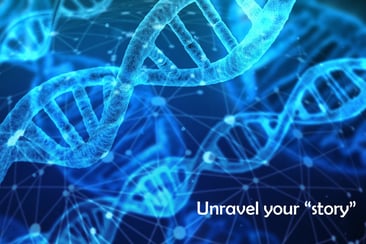

Click on the images for more details about the panels
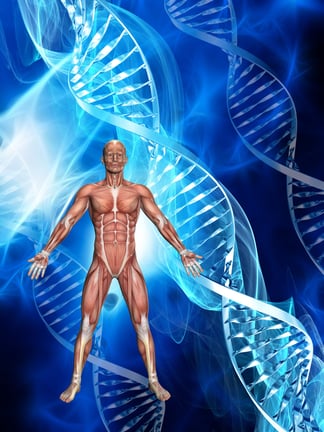

Know about your Genome
Your Journey Starts Here.........




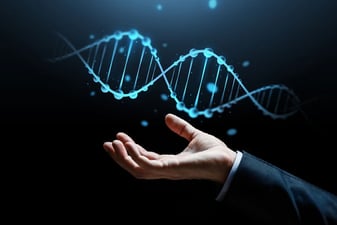

Landmark
2003 was a landmark year in the history of human genetics.
The Human Genome Project (HGP) announced a scientific breakthrough of great importance.
In an International Collaborative Scientific effort, the whole Human Genome Sequencing was done!
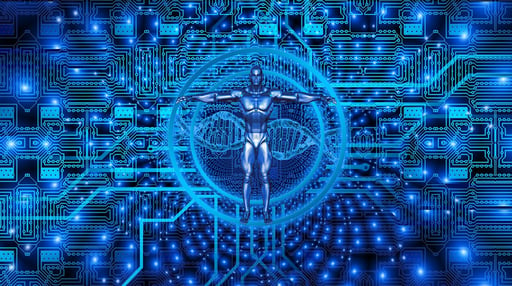

What is a Genome?
In simple terms, the Genome is our 'Book of Life' which comes in two volumes. We pick one volume from either parent!
There are 46 chapters in the book (the chromosomes - 23 pairs).
Each chapter contains the double-stranded DNA (deoxyribonucleic acid) and protein.
The DNA is made up of four nucleotide bases adenine, thymine, cytosine, and guanine (A, T, C, G). 'A' pairs with 'T' and 'C' pairs with 'G', giving the DNA a double-helix appearance. So, our story of life is written with just 'FOUR' letters. Of course, we have about 3 billion of these base pairs!
The specific sections of the DNA are called the genes. This is what we test!
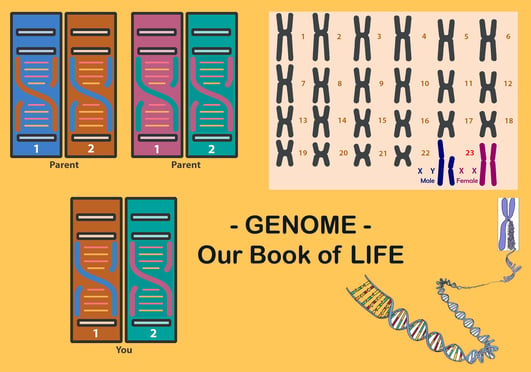

Testing
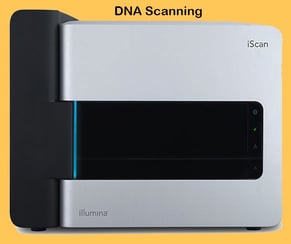

The most common method to carry out genomic testing is microarray. The microarray data typically consists of information on the mutations/variations present in human genes. Global Screening Array (GSA) or Global Diversity Array (GDA), an advanced microarray tool from Illumina can capture ~ 6.5 lakh genetic variations also known as Single Nucleotide Polymorphisms (SNPs) from individuals. These SNPs are associated with various health aspects of humans, namely lifestyle diseases, nutritional requirements, suitable drugs, physical characteristics, sports performance, psychological traits, and so on.
Microarray and Next Generation Sequencing are some of the tools that generate such enormous data. Several scientists worldwide are working on generating new data, and some are researching applications of such genomic data.
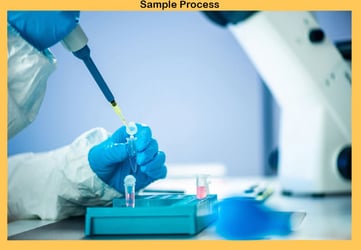

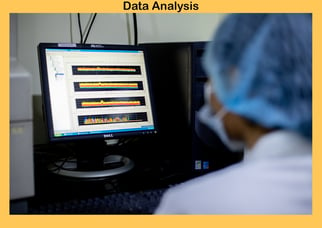

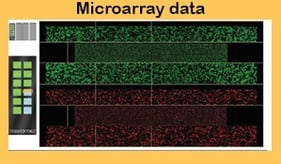

The key point in the practical utility of Genetic Testing is to get proper guidance based on the test results to get maximum benefits!
So scientific post-test counselling is extremely important.
Genetic Test is a once-in-a-lifetime test, findings will remain the same throughout your life!




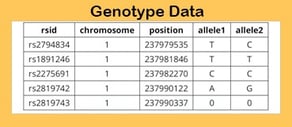
Interesting and Mindboggling!
Apes (gorillas, chimpanzees & orangutans) have 48 chromosomes, Dog 78, Horse 64, Camel 74, Donkey 62 and so on.........
C. elegans (nematode – a worm) almost has the same number of genes as humans!
Rice & wheat have more genes than humans!


If a person decides to type all the letters (A, T, C, G) in our DNA, he or she would have to type 60 words per minute, for 8 hours a day for about 50 years!
If we uncoil all our DNA and place it end-to-end, it would be about 67 billion miles long, that is about 150,000 round trips to the moon!
The DNA of any two people on the earth is 99.60% identical. But, the 0.40% variation represents about 12 million base pairs. That explains the many differences between the two individuals.
Just 2% of our DNA is used for coding proteins which determine the form and functions of our body.
More than 98% of our DNA is non-coding DNA, also called the 'junk DNA'. We have still not fully understood the function of this part of our DNA.


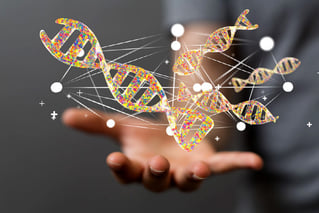

It is not about how much you have, it is about what you have!
Epigenetics
Epigenetics is the study of changes in an organism caused by modification of gene expression rather than the alteration of the genetic code itself.
While our DNA provides the blueprint for the characteristics and functions of our cells, epigenetic modifications can influence which genes are turned on or off in different cells and at different times. These modifications act as a kind of "switch" that can activate or silence specific genes.
Epigenetic changes can be influenced by a variety of factors, including environmental factors such as diet, stress, toxins, and lifestyle choices. They can also be influenced by developmental processes and can play a role in various aspects of human health and disease.
One of the significant discoveries in epigenetics is that these modifications can be passed on from one generation to another. This means that experiences and environmental factors affecting an individual can potentially have an impact on the gene expression and health of their offspring.
Overall, epigenetics provides valuable insights into how genes are regulated and how external factors can influence our health and development. It highlights the dynamic nature of our genetic material and the interplay between genes and the environment.




Learn how to switch 'on' the good genes and switch 'off' the bad ones.
Testimonials
AS
gm sir🙏🏻,i hv started following the plan...i was supposed to follow up in -15 days,bt cannot wait to share my experience..body is magically responding...allergies r 50% less...i think hypoproteinimia and homocysteinimia were the major cause due to nutritional deficiencies...my performance has improved,i am feeling much better...i am obliged lifelong sir ...thanks is a small word ,still thanks a lott🙏🏻🙏🏻🙏🏻🙏🏻🙏🏻🙏🏻
RA
I am a commonwealth wrestling gold medalist. Sports genetic testing helped me to lose a few extra kilos to be eligible for my weight category. Also helped me to plan my rest/recovery schedules, hydration & protein intake.
Note: To maintain confidentiality, names are not disclosed.
ND
Completed Sahyadri Classic 3 Ghat Challenge.
Enthused by your reports and following a clean coronary CT, despite high LDL, I dared to accomplish this feat on Saturday at Mahabaleshwar!
The 3rd ghat climb created a big challenge. I was feeling concerned on whether my muscles will support. But I remembered your report and decided to push hard! It worked well. I maintained very good hydration so there weren’t any cramps.



